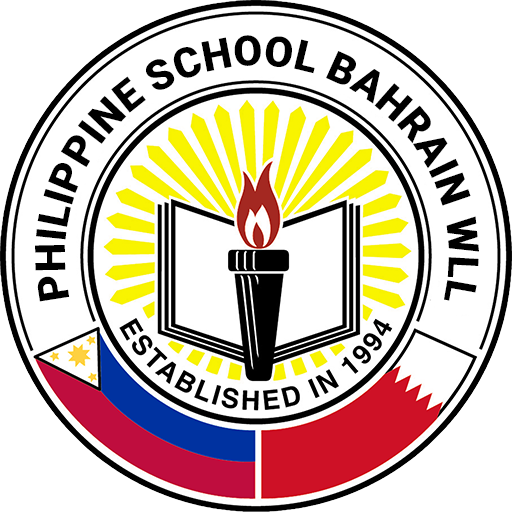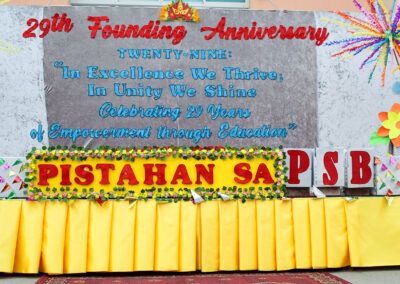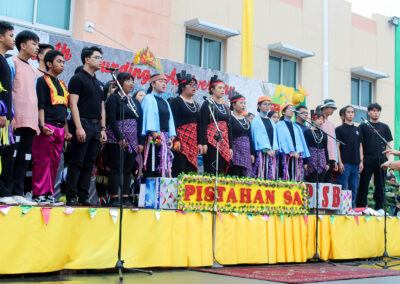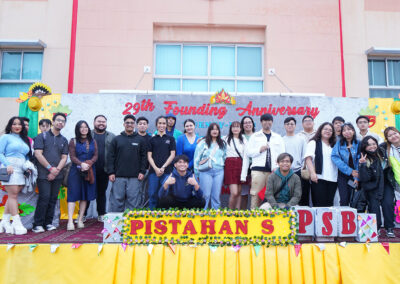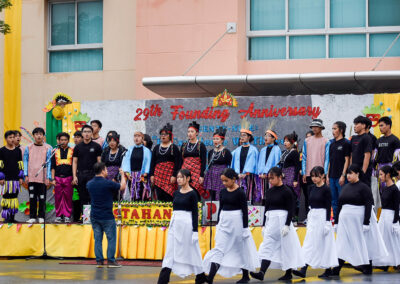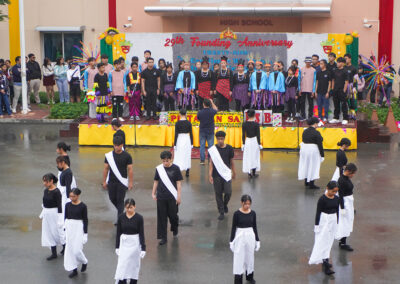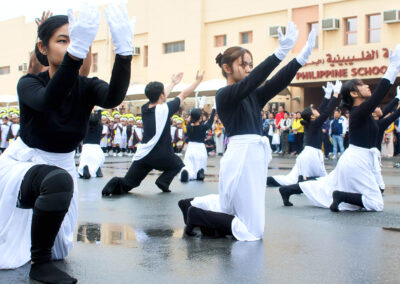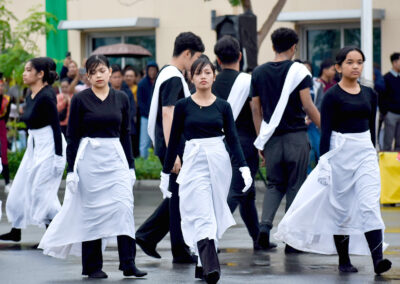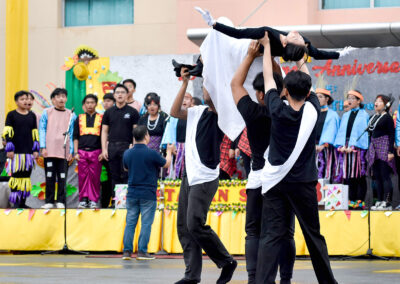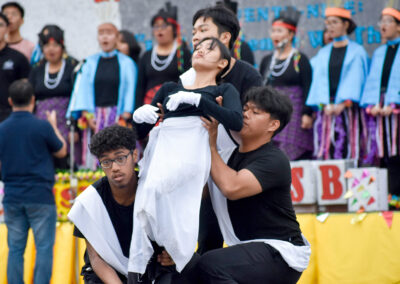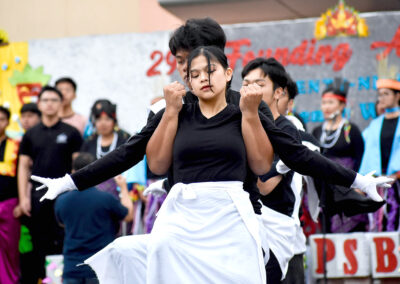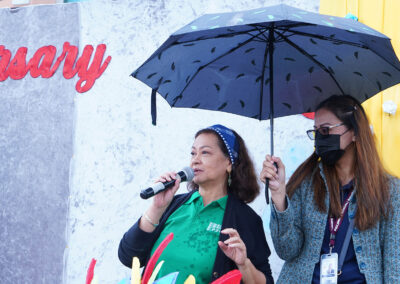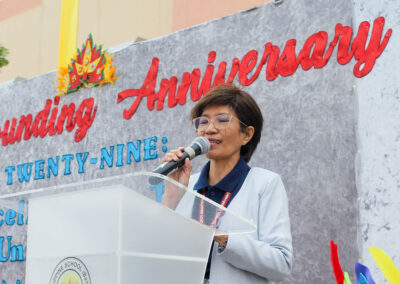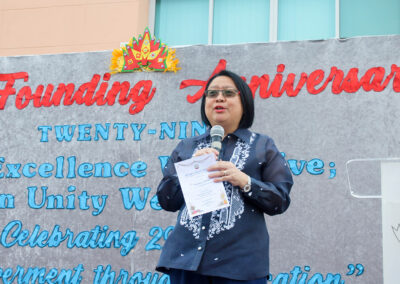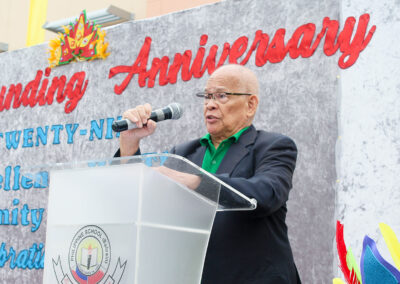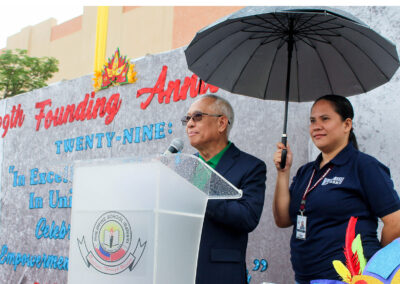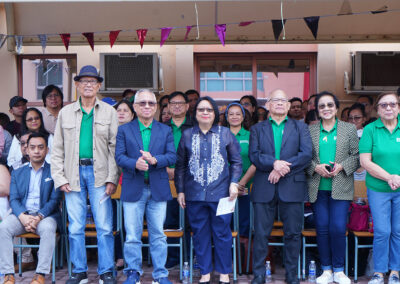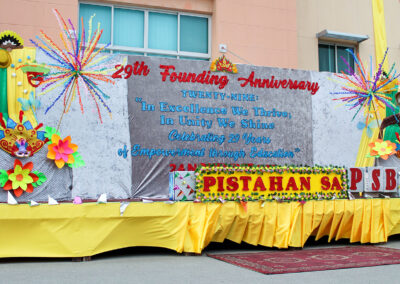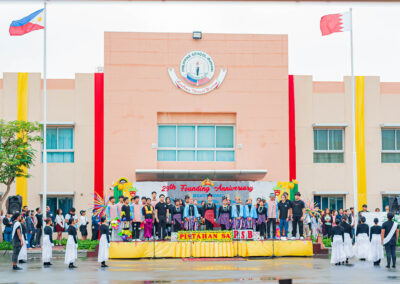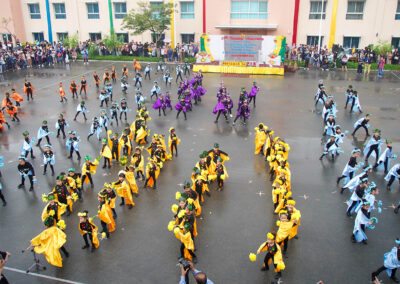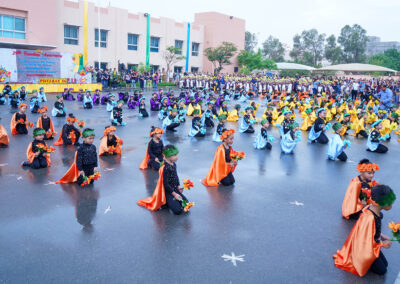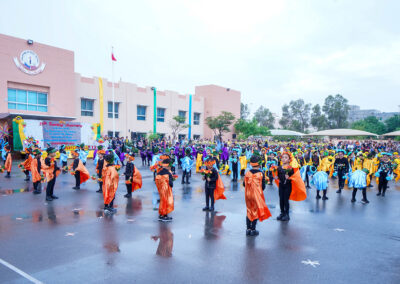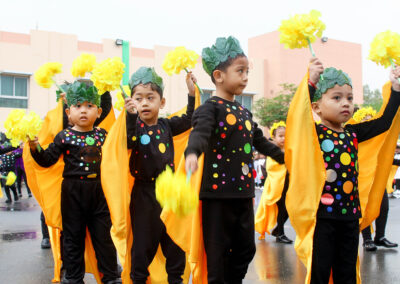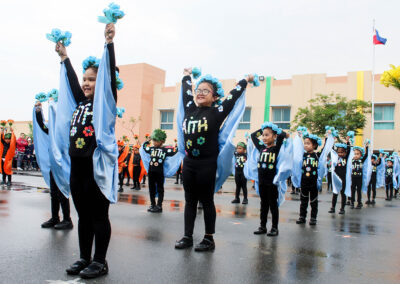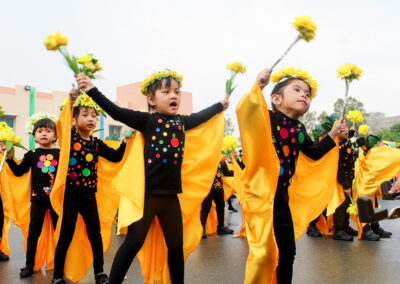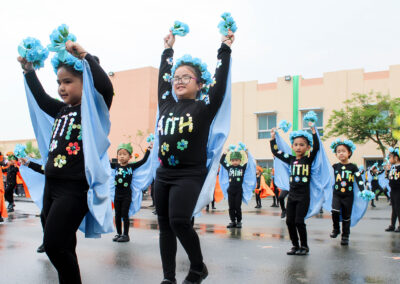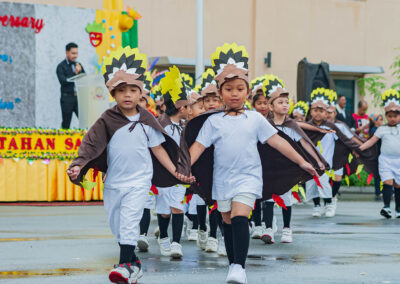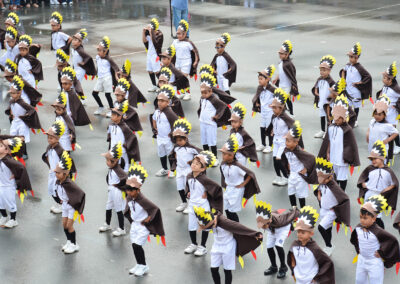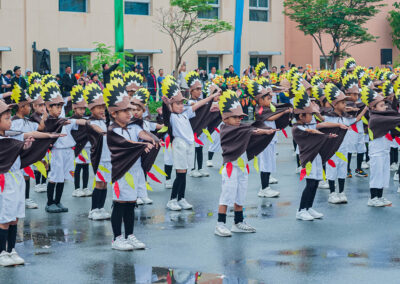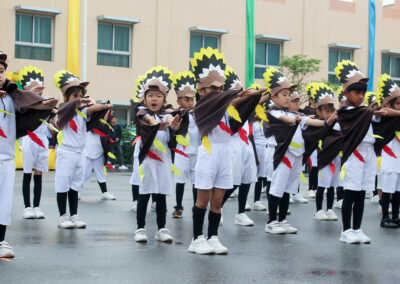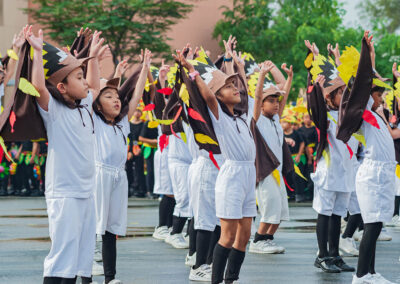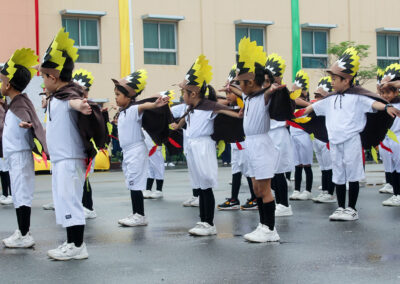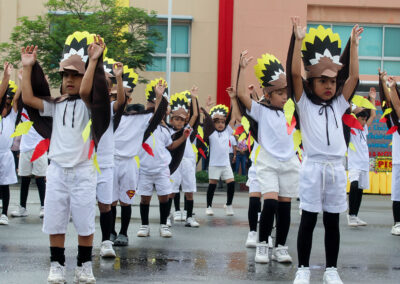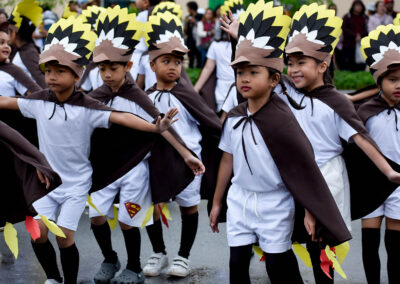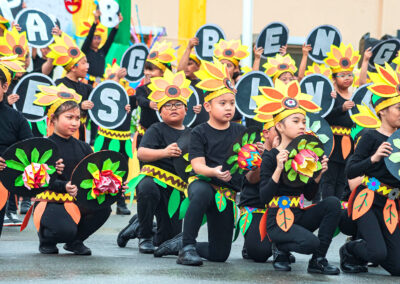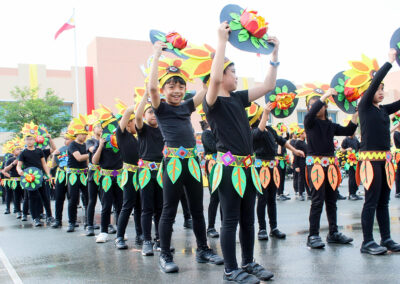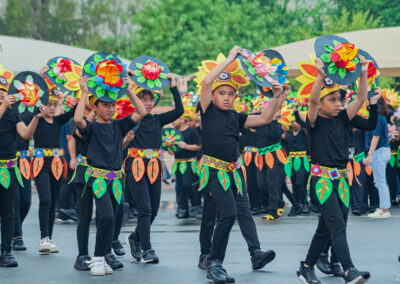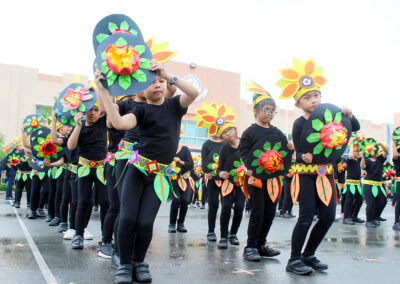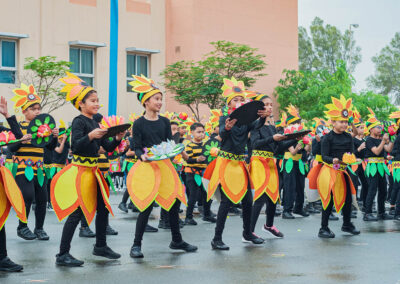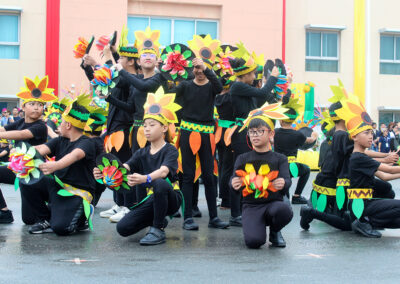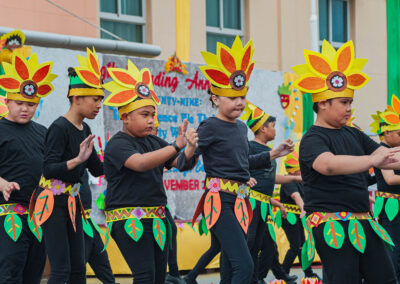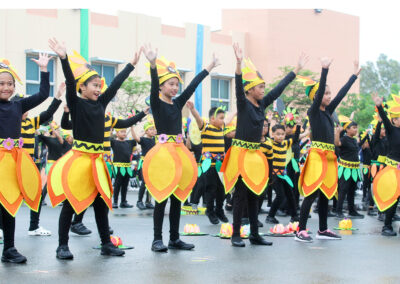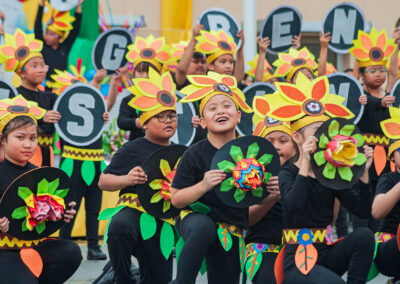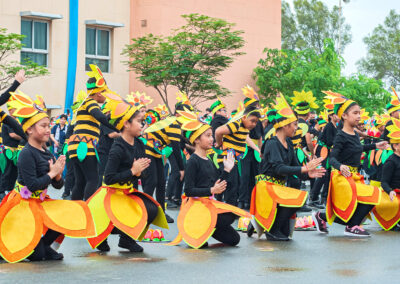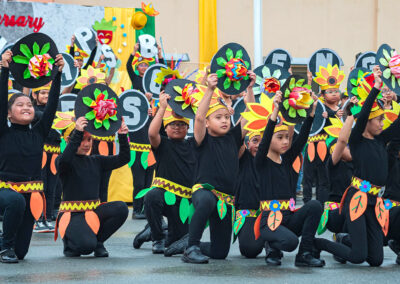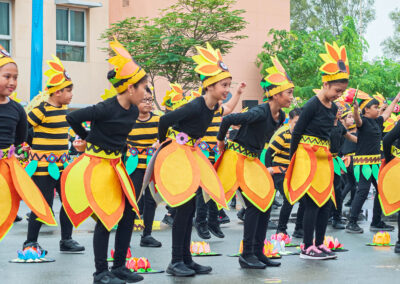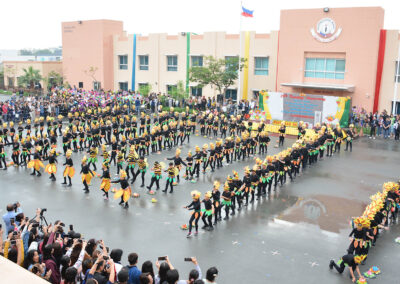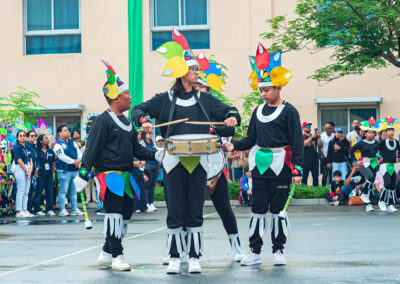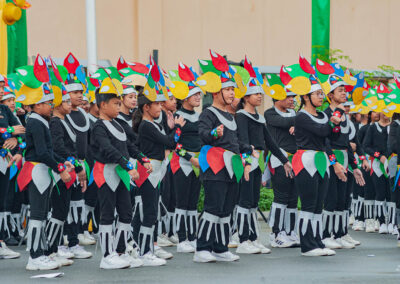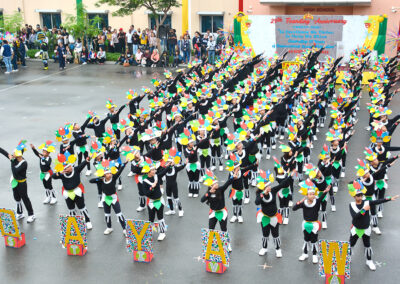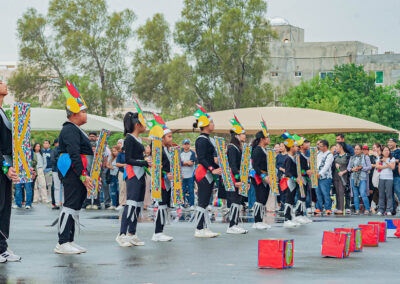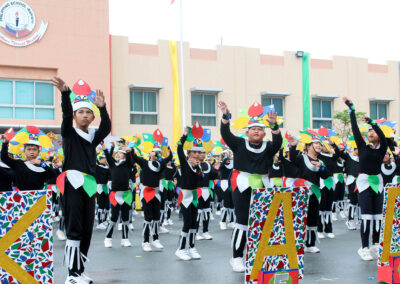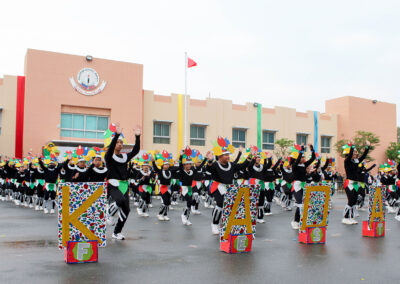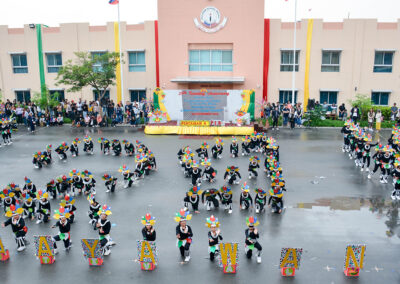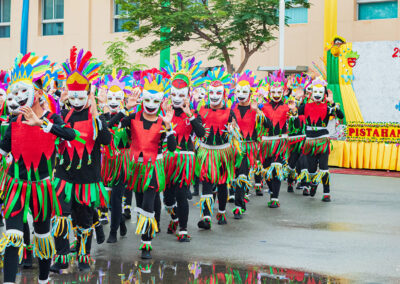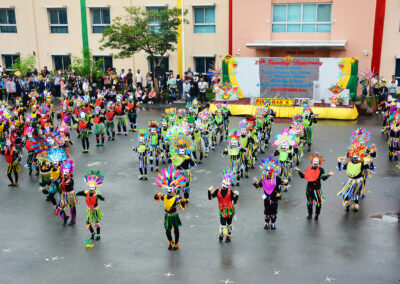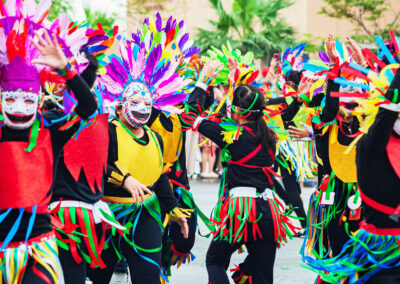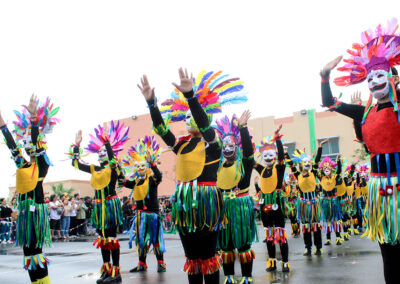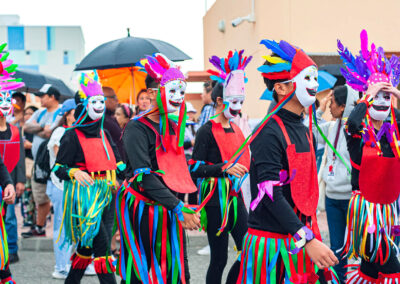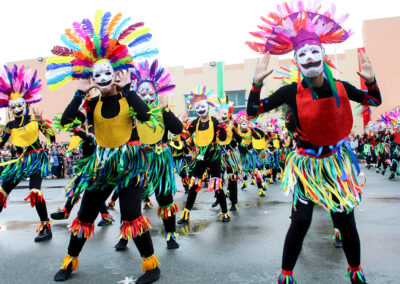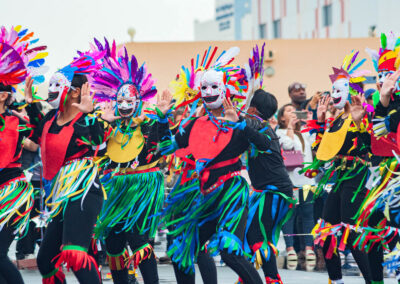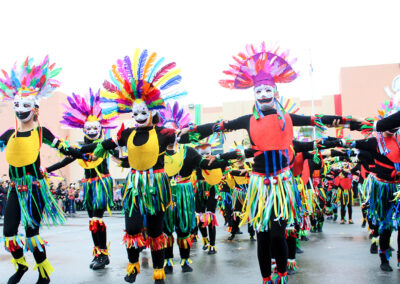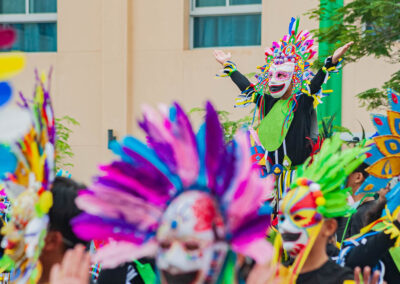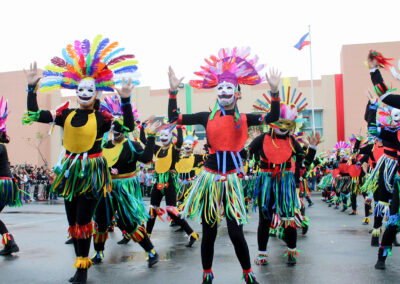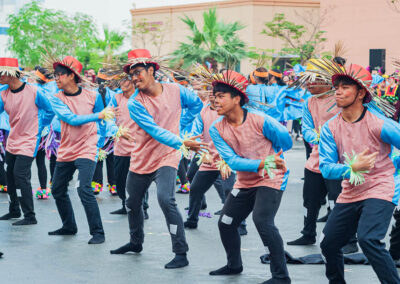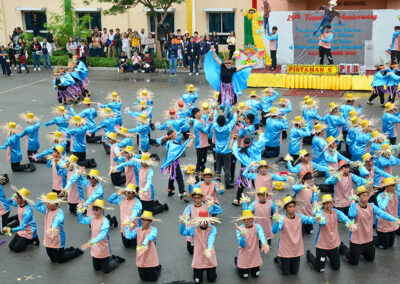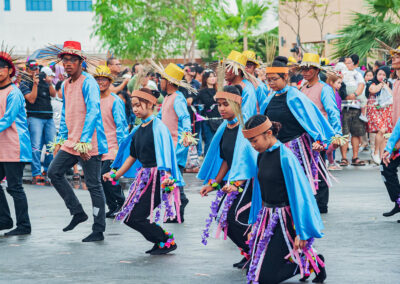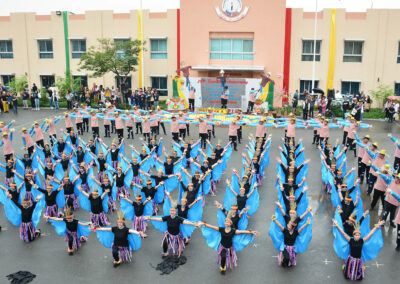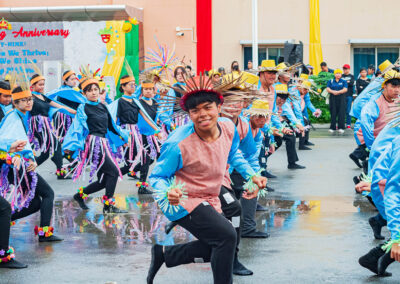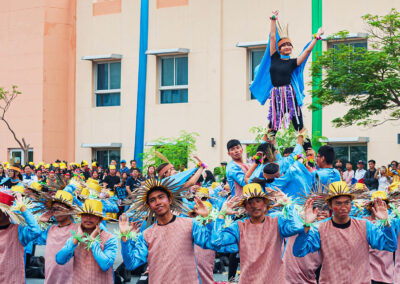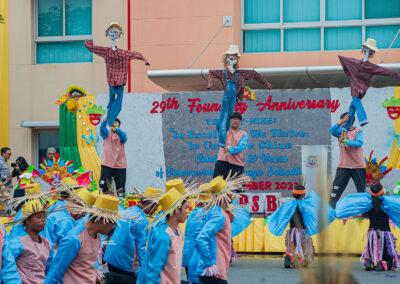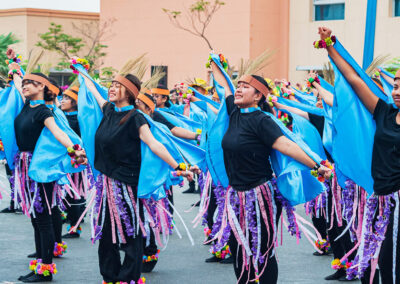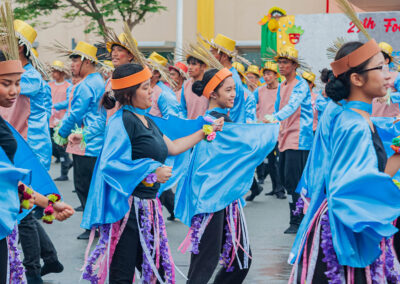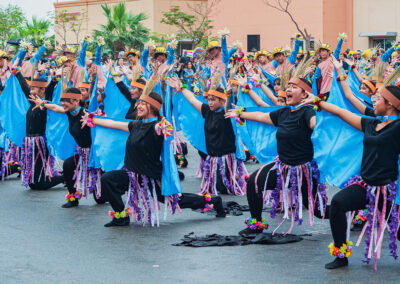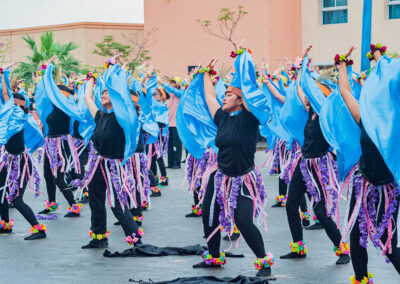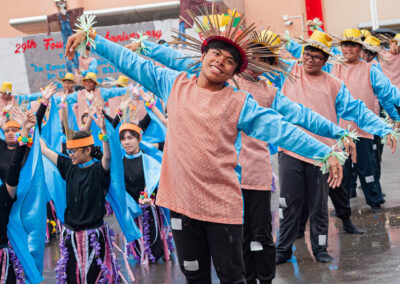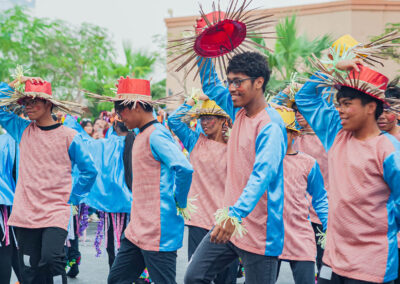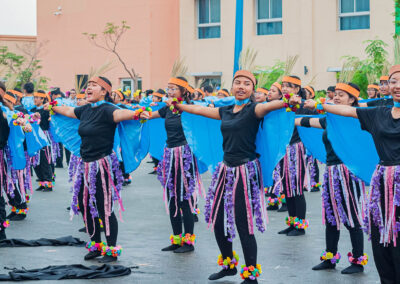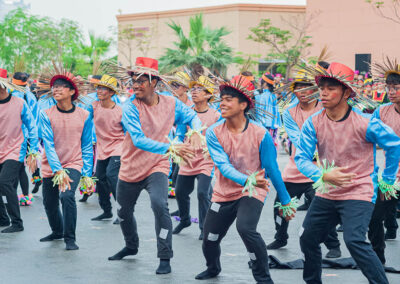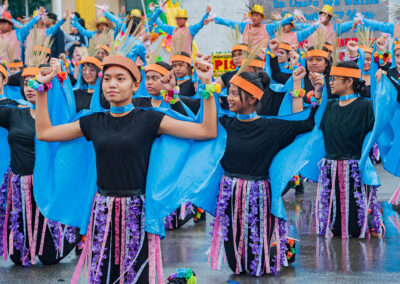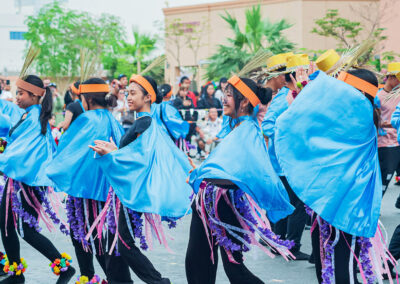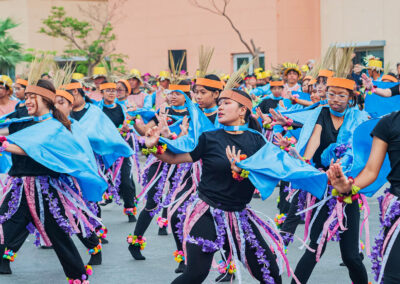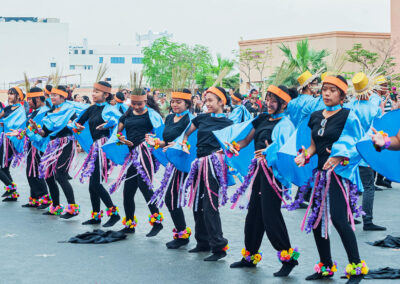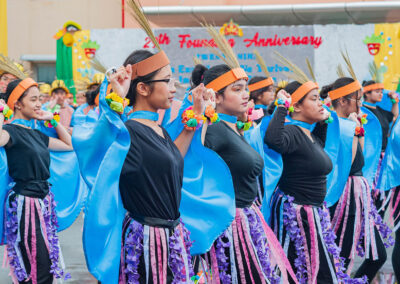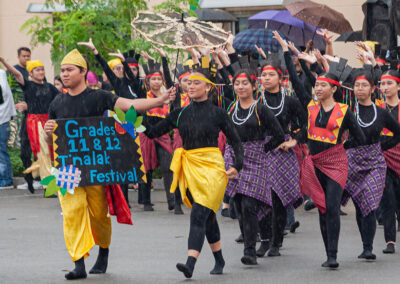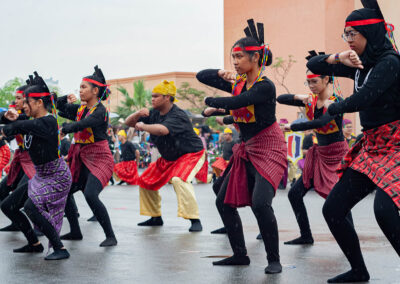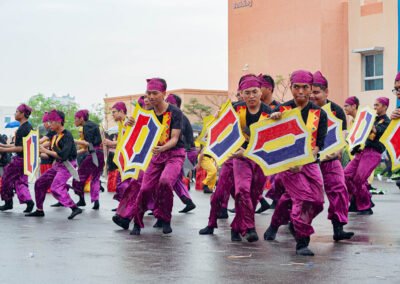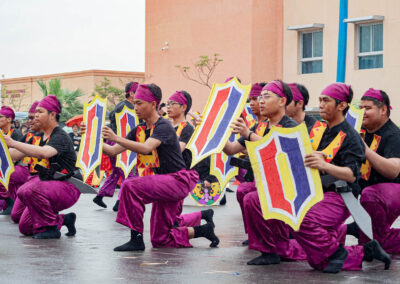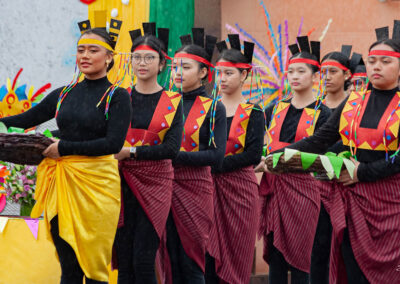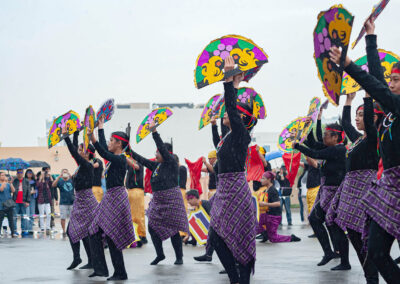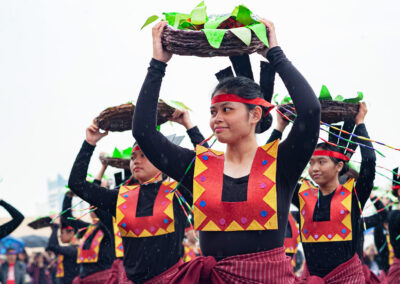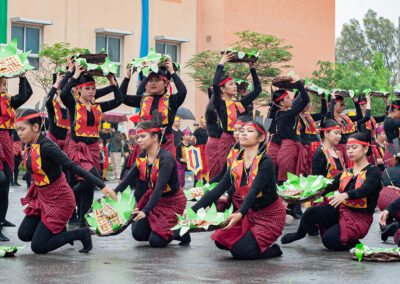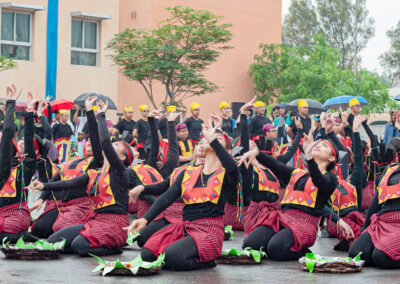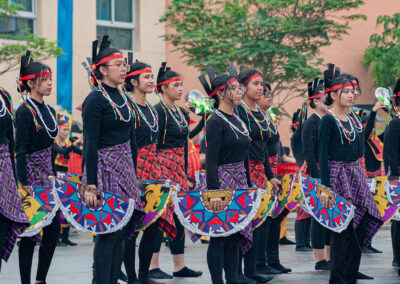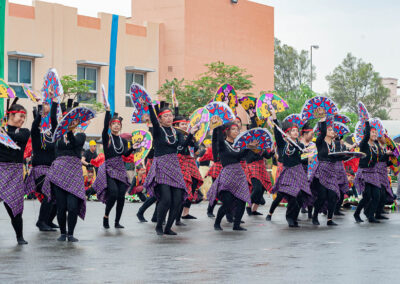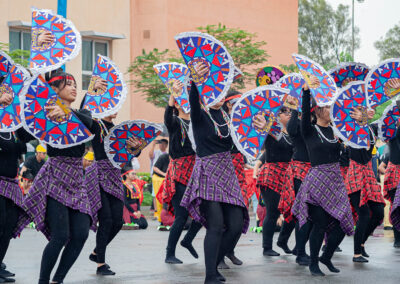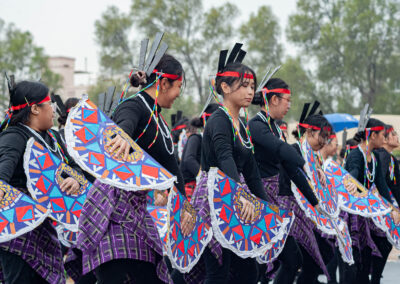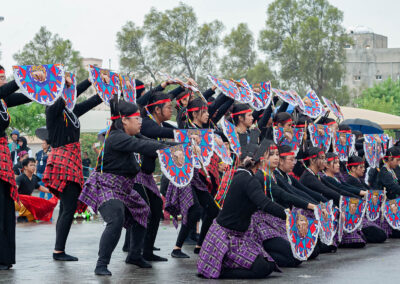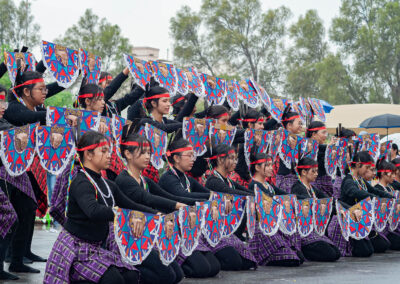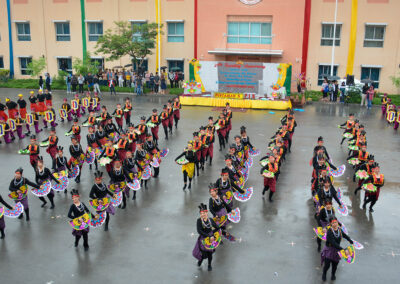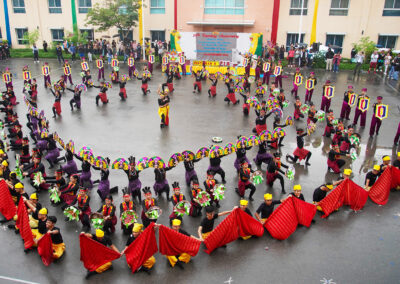PHOTO GALLERY –
Philippine School Bahrain 29th Founding Anniversary Celebration
24 November 2023 @ PSB Campus, A’Ali, Kingdom of Bahrain
Her Excellency Anne Jalondo-on Louis, Ambassador Extraordinary and Plenipotentiary of the Philippines to the Kingdom of Bahrain, joined the Philippine School Bahrain’s 29th anniversary celebration alongside the school’s Board of Directors, headed by Mr. Reuel Castro. The event, marking a significant milestone for the school, brought together parents, teachers, students, members of the Filipino community, and friends in a display of unity and pride. The celebration was a collaborative effort, organized by Board Secretary Ms. Maria Esperanza Carmen Liamco and Ms. Liezl Mercado, with the support of School Principal Ms. Gydabelle Naval, Vice-Principals Ms. Arlene Detera and Ms. Ivy Simbala, and the dedicated staff members.
The program featured an exhibition of various Philippine traditional festival dances by students from all grade levels. The Festival Dances embody the essence of the occasion and resonate with the school’s mission and vision. These dances, rooted in age-old traditions and customs, are a reflection of the rich tapestry of festivals that color the Philippine archipelago. Each dance carries its own unique story, symbolizing the spirit, resilience, and unity of the Filipino people.
Through these Festival Dances, we aim to instill among its students a profound appreciation of traditions that have shaped each one, to nurture their pride in being a Filipino, and to inspire them to become ambassadors of the rich Filipino culture.
Moreover, our school’s vision aligns perfectly with the essence of the Festival Dances as we aspire to cultivate global citizens who embrace diversity, celebrate multiculturalism, and contribute positively to society. These dances serve as a powerful reminder that the Filipino culture is not confined within the nation’s borders but is a gift that we can share with the world.
1. Bila-Bila by the Kindergarten Pupils
Bila Bila means butterfly in the local language in Marinduque. The province is known as the “Butterfly Capital of the Philippines” with roughly 11 butterfly farms scattered mainly in the town of Boac and Gasan. Hence, Bila Bila Festival (Butterfly Festival) is a celebration of butterflies and its conservation as well as the thriving butterfly farming in Marinduque.
2. Lapay Bantigue Dance by the Grades 1 and 2 Pupils
The Lapay-Bantigue Dance Festival is a highly anticipated annual event celebrated during the Masbate City anniversary on the 30th day of September. This festival pays homage to the traditional folk dance created many years ago by “Lola Felisa,” who beautifully imitated the graceful movement of the hovering birds called seagulls, locally known as Lapay. This dance has evolved over time and is now officially recognized by the Cultural Center of the Philippines as one of the country’s official folk dances. It even gained recognition during the era of Spanish colonization, showcasing its enduring cultural significance.
3. Panagbenga Dance by the Grades 3 and 4 Pupils
Panagbenga Festival is a month-long annual flower occasion in Baguio, Philippines. The term is of Kankanaey origin, meaning “season of blooming”. The festival, held in February, was created as a tribute to the city’s flowers and as a way to rise from the devastation of the 1990 Luzon earthquake. The festival also includes street dancing, presented by dancers clad in flower-inspired costumes, that is inspired by the Bendian, an Ibaloi dance of celebration that came from the Cordilleras. The performance of the Panagbenga dance symbolizes the blooming potential and growth experienced by our students at Philippine School (Bahrain). Just like the flowers that flourish in Baguio, our school provides an environment where students can blossom academically, creatively, and personally.
4. Kadayawan Festival by the Grades 5 and 6 Pupils
The Kadayawan Festival is an annual event held in Davao City, Philippines, which showcases the abundant harvest and the diverse cultural traditions of the region. It is a time of joy and thanksgiving, as the community comes together to honor the bountiful blessings bestowed upon them by nature and their hard work. One of the highlights of the Kadayawan Festival is the Indak-Indak sa Kadalanan, translated as street dancing, which showcases the diverse indigenous cultures of the region as portrayed by our Grades 5 and 6 pupils dancing in vibrant costumes. This highlights unity in diversity, as our students come from different regions in the Philippines.
5. Masskara Dance by the Grades 7 and 8 Students
The word “Masskara”, a multitude of faces, is a pun on the Filipino word for mask (maskara). It is a prominent feature of the festival and is always adorned with smiling faces, giving rise to Bacolod being called the “City of Smiles”. The festival features a street dance competition where people watch masked dancers gyrating to the rhythm of Latin musical beats in a display of mastery, gaiety, coordination and stamina. The festival is a reflection of resilience, joy, and unity in the face of adversity. Just as the people of Bacolod, despite challenges, continue to wear their masks with a smile, our school also embraces a similar spirit of determination and optimism.
6. Bambanti Festival by the Grades 9 and 10 Students
The Bambanti Festival celebrates the use of “bambanti” or scarecrow by the people of Isabela province in their vast farmlands to protect its crops. The activities reflect the bounty of the harvest, the talents of its people, and its vibrant cultural heritage. Bambanti connects deeply with our school’s commitment to sustainability and environmental consciousness, as well as the agricultural heritage of the Philippines. Just as the farmers in Isabela nurture the land, our students at Philippine School Bahrain recognize the importance of agriculture in our country’s economy and culture. They actively engage in initiatives that promote eco-consciousness, sustainable farming practices, and respect for nature, understanding the vital role that agriculture plays in our society.
7. T’nalak Festival by the Grade 11 and 12 Students
The province of South Cotabato celebrates the T’nalak Festival yearly in July. The festival gets its name from “t’nalak,” a colorful abaca cloth, created and woven by the women of the T’boli tribe of South Cotabato. The design of the cloth is unique and “dreamed up” by the person who creates it. That’s why the province is known as “The Land of the Dreamweavers.” A grand parade is held to showcase the cultures of the tribal communities and indigenous people from South Cotabato, including the B’laan and T’boli, through dances. In the enchanting tapestry of our Filipino heritage, the performances stand as a testament to the enduring spirit and ingenuity of the indigenous people from the highlands of Mindanao and embodies a story, a connection to our roots, and the indomitable spirit of the Filipino people.
Summary
Through these captivating presentations, the essence of Philippine School Bahrain is celebrated where curiosity, unity, growth, resilience, sustainability, and creativity intertwine to create an extraordinary learning environment.
